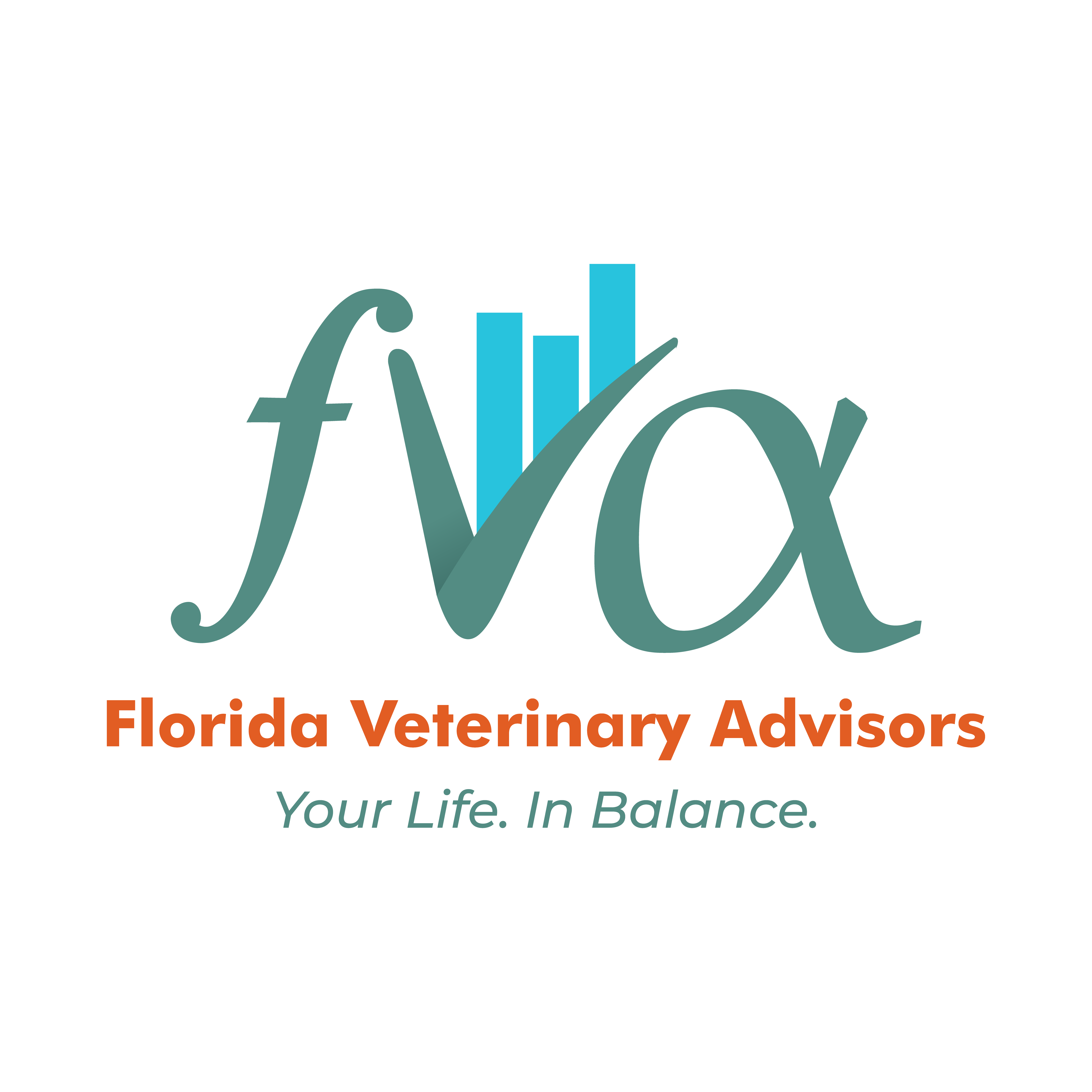
- dvm360 November 2022
- Volume 53
- Issue 11
- Pages: 50
How and when to start paying back student loans

The $1 million-question: Should you save or pay off debt?
Content submitted by Florida Veterinary Advisors, a dvm360 Strategic Alliance Partner
It can be a struggle to decide whether to save money or pay down student debt. The answer is that you should do both at the same time.
Most veterinarians are coming out of school owing hundreds of thousands of dollars that were lent to them by the government or a private lender. Taking on debt is not a bad thing, as most people would suspect, because the main reason you took it on was to further your education. Imagine if you had enough cash when starting veterinary school that you could choose whether or not to borrow money. It is quite an uplifting and empowering feeling. Not many people have this luxury, so they must rely on student loans to get them through school.
The average veterinary salary in 2020 was $99,250.1 Based on the amount you borrowed during undergraduate and veterinary school, your debt could be from 1 to 4 times your current or starting salary. This all depends on where you live and what type of veterinary medicine you plan to practice. What if I told you that you were a millionaire by taking out these loans? You probably just rolled your eyes or asked, “How?” Well, you may not be a millionaire right now, but let’s take a look at your future earning potential. Based on the salary we just discussed, someone who works a 30-year career with an average pay increase of 4% each year would earn over $5.7 million. Think about that. You borrowed $200,000 but will earn 28.5 times the amount you borrowed over your career. This is a huge deal.
Debt is frowned upon because of payments and interest, so many people will get tunnel vision and make eliminating it their top priority. If your goal was to repay the debt in 10 years and you had enough income, but during that period you would save very little, what would you do? This is the dilemma so many veterinarians get into right out of school. The one thing I know for a fact is that we cannot get back time. The question I like to ask people is: Can you tell me with absolute certainty that you will be able to start saving money after paying off your debt? This is a difficult question to answer, but the answer is no. None of us know what our lives will look like in a month, 3 months, 1 year, or even 10 years from now. When the priority is placed on repaying debt, we are sacrificing the certainty that we can achieve other goals in life, along with eventually having the choice to not work forever.
We should always start with trying to become a world-class saver. This means we are saving 20% of our gross income (salary and production before taxes and deductions). Sometimes this can be difficult right out of the gate because there are other responsibilities, but the focus should always be to save money. Ideally, we would build up a minimum 3-months’ emergency fund that would be determined from our expenses. The rest of your savings needs to be directed toward buckets that are accessible. Retirement accounts, such as 401ks and individual retirement accounts, are a big draw because people constantly feel behind the 8 ball with retirement savings. The problem is that these accounts come with restrictions and penalties when accessed before a certain age.
If saving is difficult for you, take a step back and create a spending plan. The reason I use the term spending plan instead of budget is because budgets are for those who really struggle with spending, and the goal is to create strict boundaries. A spending plan is meant to create awareness and provide the ability to pivot spending when needed or wanted. We need to establish a baseline on what we are spending. This includes all the fixed expenses, such as rent, electricity, and car payments, and all variable expenses that can be adjusted, such as groceries, eating out, entertainment, and shopping. Once this baseline has been created, we can learn where there is flexibility to redirect spending to save and pay off debt.
So, let’s talk about paying off debt. First, look at all your debt as one big picture. We want to find out the total balance with the average interest rate. There are calculators available online to figure this out. Second, use a time value of money calculator to plug in the balance and the interest rate. We need to understand how much money is required each month to repay the debt back over multiple periods. This could be 25 years, 15 years, 10 years, or sooner. After we understand what payment is required, this can then help us understand what period to choose and is possible to repay so we can become realistic with our repayment plan. Once the repayment plan is chosen, it is vital to stick to that plan and keep paying back the loans. You can reevaluate the repayment plan every 12 months, but you need to place the emphasis on saving money. Every 3 to 12 months, you can decide whether any of that extra money that has been saved should be put toward debt or allocated toward your plan to one day not have to work forever.
Let’s summarize:
- Create a baseline of your spending, including fixed and variable expenses.
- Calculate the required monthly payment for different periods based on the entire debt balance and average interest rate.
- Start saving 20% of your gross income (or as much as possible).
- Begin to pay back loans based on a realistic period and do not spontaneously change it.
- Every 3 to 12 months, reevaluate whether you want to put extra cash toward debt.
The plan is simple to understand, but the implementation is where many people have challenges. If you need help, make sure to reach out to someone who can show you how to create these behaviors and maintain them long term.
Tom Seeko, CExP is the cofounder of Florida Veterinary Advisors, a financial firm based out of Tampa, that works with veterinarians throughout the United States. He is also a cofounder and cohost of the Smarter Vet Financial Podcast, which helps veterinarians simplify finances to gain clarity and confidence, and experience control and contentment.
Disclosure
Tom Seeko and CJ Burnett are registered representatives and financial advisors for Park Avenue Securities LLC (PAS), 4200 West Cypress Street #700, Tampa, FL 33607. Security products/services and advisory services are offered through PAS, a registered broker-dealer, and investment advisor. Tom Seeko and CJ Burnett are financial representatives for The Guardian Life Insurance Company of America, New York, New York. PAS is a direct, wholly-owned subsidiary of Guardian. Florida Veterinary Advisors is not an affiliate or subsidiary of PAS or Guardian. PAS is a member of FINRA, SIPC. Material discussed is meant for general informational purposes only and is not to be construed as tax, legal, or investment advice. Please note that individual situations can vary. Therefore, the information should be relied upon only when coordinated with individual professional advice. Guardian, its subsidiaries, agents, and employees do not provide tax, legal, or accounting advice. Consult your tax, legal, or accounting professional regarding your individual situation. Guardian and its subsidiaries do not issue or advise with regard to student loans. 2022-144980 Exp. 10/2024.
Reference
How much does a veterinarian make? U.S. News & World Report. Accessed September 29, 2022. https://money.usnews.com/careers/best-jobs/veterinarian/salary
Articles in this issue
about 3 years ago
Snuggles in San Diegoabout 3 years ago
Medical World News™: Fetch speaker sings medicinal musicabout 3 years ago
Rabbit endotracheal intubation: Yes, you can do it (Part 1)about 3 years ago
Obtain a cat’s consent for careabout 3 years ago
4 ways to advance as a veterinary technician or assistantabout 3 years ago
Psychotropic substances are poisoning petsabout 3 years ago
The overprotective pet ownerabout 3 years ago
Why shock wave therapy can’t be imitated in patient careabout 3 years ago
Busting oncology mythsNewsletter
From exam room tips to practice management insights, get trusted veterinary news delivered straight to your inbox—subscribe to dvm360.






